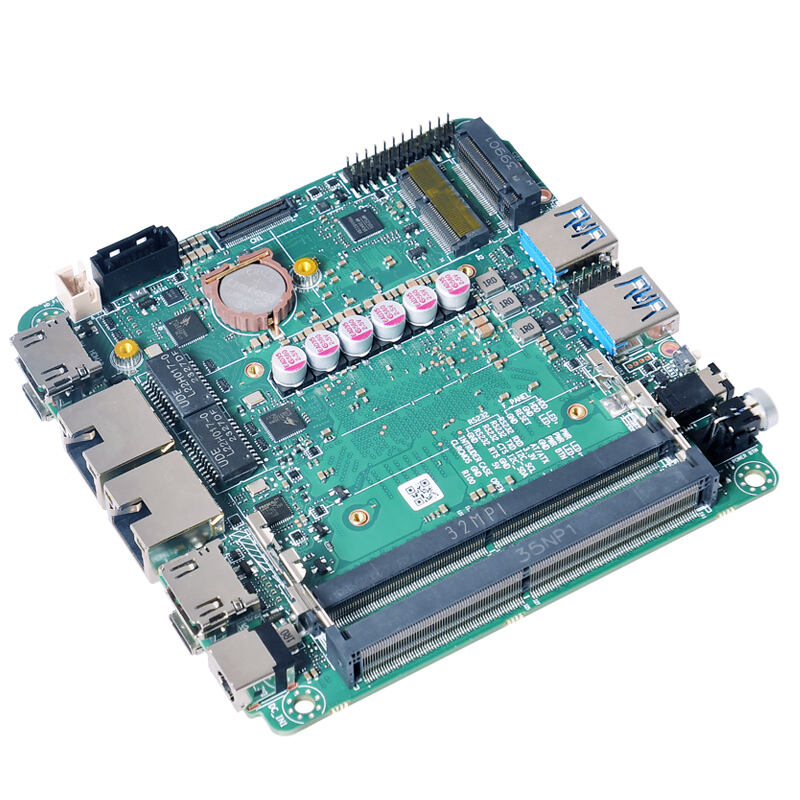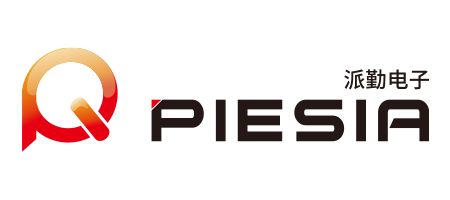PC 工業コンピュータ 1U シャシ コンパクトシステム設計
産業用PCソリューションとその重要性について理解する
産業用PC (IPC) は,厳しい環境や長期的アプリケーションで使用するために設計された特殊なコンピューティングデバイスです. 標準的な消費者向けPCとは異なり IPCは極端な温度や高湿度や 物理的な衝撃などの厳しい条件に耐えられるように作られています これらの特徴は,IPCが信頼性と効率性を保ち,製造,医療,輸送,エネルギーなどの分野において不可欠なものとなります.
テクノロジーの進歩とともに 産業は 複雑化している作業をサポートする 信頼性の高いコンピューティングソリューションの 需要を 増しています 変化する環境では,複雑なプロセスを精度,効率,信頼性をもって処理できる IPC が必要になります. AIやIoTのような新興技術により 堅牢な産業コンピューティングシステムの重要性が 強調されています これらの新しい技術を統合する能力を持つ IPCは,進歩を推進し,産業環境での生産性を高めるのに不可欠です.
工業用PCの部品
工業用PCは 荒い環境の要求に応える 特定の部品で作られています マザーボードとCPUは,工業PCのコアを形成し,高温と振動に耐えながら複雑なタスクを実行するために必要な処理力を供給します. 普通のPCとは異なり,これらのマザーボードとCPUは長寿と信頼性のために最適化されており,産業環境で一般的なストレスを耐えることができるようにします.
産業用PCでもメモリとストレージソリューションが重要です 消費品向けPCとは異なり 容量に優先されるかもしれませんが 産業用PCは耐久性とスピードに重点を置いています 高性能固体ドライブ (SSD) はショックや振動に抵抗するために使用され,極端な条件下でパフォーマンスを維持するために頑丈なメモリが実装されています. この組み合わせにより,産業用PCは,頻繁な保守を必要とせずに長期的に信頼性の高い性能を保ちます.
産業用PCの接続性は,様々なコネクタとI/Oオプションによって確保されます. RS-485やCANバスなどの産業プロトコル規格に対応するように設計された特殊なインターフェースも含まれます. これらの強化された接続オプションの目的は,データ収集から機械制御までの産業用アプリケーションの多様な要求に応えることです この接続装置は,産業用PCが既存のシステムにシームレスに統合され,他の産業用機器と効果的に通信できるようにします.
これらの部品はどれも 厳密に設計され 工業環境の特殊な要求を満たし 厳しい条件下で 産業用PCが 堅牢で信頼性が保たれます これらの重要な要素を理解することで,企業は,特定のアプリケーションニーズに合わせて 産業用PCを選択する際には 適切な情報に基づいて 意思決定を行うことができます.
産業用PCソリューションの応用
産業用PCソリューションは,その強さと信頼性により,様々な産業に不可欠です. 製造と自動化において IPCはロボット工学と制御システムにおいて重要な役割を果たしています 精密な動き制御を成し遂げ 生産性を向上させ 自動化されたプロセスを動かし 監視することで 運用効率を高めます 例えば自動車生産ラインでは IPC がロボット腕を管理し 同期し効率的な組み立て作業を 容易にするのです
医療分野では 工業用PCは 先進医療機器の操作に不可欠です 患者のモニタリングシステムで利用され リアルタイムでデータ収集と分析を可能にします この能力は 医療従事者に 診断や介入に不可欠な 患者健康に関する正確な 絶え間ない指標を提供することで 緊急の医療対応に不可欠です
さらに,産業用PCは,産業環境におけるデータ収集と制御システムにとって不可欠です. 生産の質と効率を維持するために不可欠なリアルタイム処理と制御を 促進します IPCは複数のセンサーやデバイスからのデータを管理し,あらゆる動作異常に即座に対応できます. この機能は,化学加工や発電などの分野において極めて重要です.安全性と効率性のために,迅速かつ正確なデータ処理が不可欠です. これらのアプリケーションを通じて,IPCは幅広い産業シナリオにおいてその多用性と不可欠性を示しています.
パーソナル 産業用 PC ソリューションを選択する利点
パーソナル・インダストリアル・PCソリューションを選択することで,性能と信頼性が大幅に向上します. 標準PCとは異なり,故障率が高いため,カスタムソリューションは 99.99%を超える改善された稼働時間を提供します. 産業環境では 重要なことです 停滞が大きな経済的損失をもたらす場合です 企業では,各システムを 特定の運用ニーズに対応するように調整することで,機器が 効率的かつ円滑に動作することを 保証できます.
業界独自の要求を満たすのに カスタマイズが鍵です パーソナル・インダストリアル・PCは,データ処理や環境監視など,特定の機能を備えるように設計されています. 自動車,食品・飲料,医薬品などの産業はそれぞれ異なる運用要求があり,標準PCは効果的に満たさない可能性があります. カスタムソリューションは,事業者が事業目標をサポートする特定のソフトウェアアプリケーションとハードウェアコンポーネントを組み込むことを可能にします.
さらに,特に厳しい環境では パーソナル・PCの耐久性は 類を見ない. これらのシステムはしばしば高いIP評価を満たし,優れた塵と水耐性を示しています. 製造工場や屋外装置などの環境に最適です 電気や電気や電気や電気や電気や電気や電気 この耐久性は投資を保護し,理想的な条件では継続的な運用を保証します
特徴的な産業用PC製品
パーソナル・マザーボードの最先端技術を探索します. この先進的な製品には AMD RYZEN 6000/7000 シリーズプロセッサが搭載されており,高速で信頼性の高いコンピューティングを保証します. 64GBまでのDDR5メモリ,2つのHDMI 2.0ポート,および2つのType-Cポートをサポートし,ゲーム,マルチメディア編集,仮想化などのハイエンド用例に最適です. 接続機能も優れています パーソナルワークステーションやプロの設定の両方にとって最適です

次に,Factory Intel Celeron J1900/J4125 Pfsense 産業ゲートウェイコンピュータは,産業用アプリケーションのための汎用的なソリューションとして注目されています. 4つのLANポートとDDR3メモリサポートにより,最適な接続性と信頼性を提供し,要求の高いタスクに不可欠です. 扇風機のない設計により 騒音のない効率的な冷却が保証され 厳しい環境にも適しています さらに,デュアルディスプレイサポートにより 多作業が容易になり,コンパクトで携帯可能なデザインにより,ダイナミックな産業用シナリオに最適です.

産業用PCソリューションの動向と革新
産業コンピューティングに人工知能 (AI) とモノのインターネット (IoT) を統合することで 運用効率が 大きく変わっています AIアルゴリズムは膨大な量のデータを分析することで意思決定プロセスを強化し,IoTデバイスはリアルタイムモニタリングと自動化を促進します 例えば AIによる予測保守は 機器の故障を予測し ダウンタイムと運用コストを大幅に削減できます 同様にIoTセンサーの使用により 機械間のシームレスなデータ交換が可能になり 製造工場の連携と生産性が向上します
エッジコンピューティングなどの新興技術は,産業環境におけるデータ処理能力を変化させている. 伝統的なクラウドコンピューティングとは異なり エッジコンピューティングはデータをソースに近い場所に処理し,遅延と帯域幅の使用を最小限にします これは,自動化製造などの分野におけるリアルタイムアプリケーションにとって特に有益で,即時のデータ処理が重要です. エッジコンピューティングは,産業が大量のデータを効率的に処理できるようにし,産業用PCソリューションの改善に重要な技術となっています. これらの進歩は より賢く効率的な産業活動のための場を準備しています
結論: 産業用PCソリューションの未来
産業用PCソリューションの未来は 継続的な技術進歩と潜在的イノベーションによって 形作られるでしょう AIやIoTのような最先端技術の統合が 普及するにつれて 産業用PCは より効率的で強力になるでしょう この進化は,よりスマートで,より反応性の高いシステムへと導いて,産業活動のダイナミックな要求に適応させるでしょう. エッジコンピューティングのような技術は,データ源に近いリアルタイムデータ処理を可能にすることで,この進歩をさらに強化し,遅延を削減し,現場での意思決定を改善します.
企業には インフラを適応させ 変化する産業環境の中で 先導を保ち 進めるよう 奨励されています 先進的な産業用PC技術に投資することで 企業は運営効率を向上させ 競争力を維持できます これらのイノベーションを常に把握することは,企業が現代産業環境の複雑さを対処できるようにするだけでなく,新たな機会を活用できるようにする. 産業用PCが進歩し続けるにつれて,これらのソリューションを積極的に統合する産業は,生産性とイノベーションの面で大きな利益を得ることになるでしょう.
Recommended Products
Hot News
-
組み込みマザーボードを使う利点は何ですか?
2024-01-30
-
産業用メインストラミーの3つの主要特徴
2024-01-30
-
ODM/OEMサービス
2024-01-18

 JA
JA
 EN
EN
 AR
AR
 BG
BG
 HR
HR
 CS
CS
 DA
DA
 NL
NL
 FI
FI
 FR
FR
 DE
DE
 EL
EL
 HI
HI
 IT
IT
 KO
KO
 NO
NO
 PL
PL
 PT
PT
 RO
RO
 RU
RU
 ES
ES
 SV
SV
 TL
TL
 IW
IW
 ID
ID
 SR
SR
 SL
SL
 UK
UK
 VI
VI
 HU
HU
 MT
MT
 TH
TH
 TR
TR
 AF
AF
 MS
MS
 GA
GA
 BN
BN





